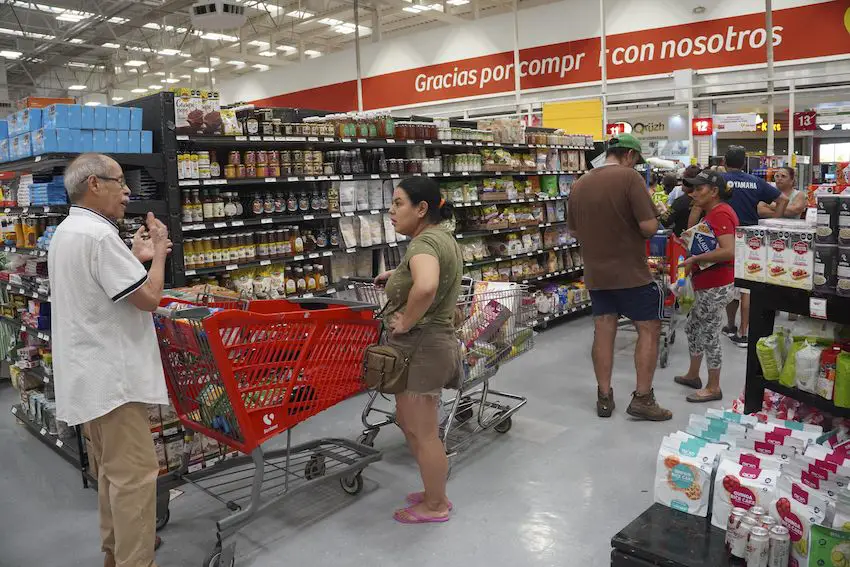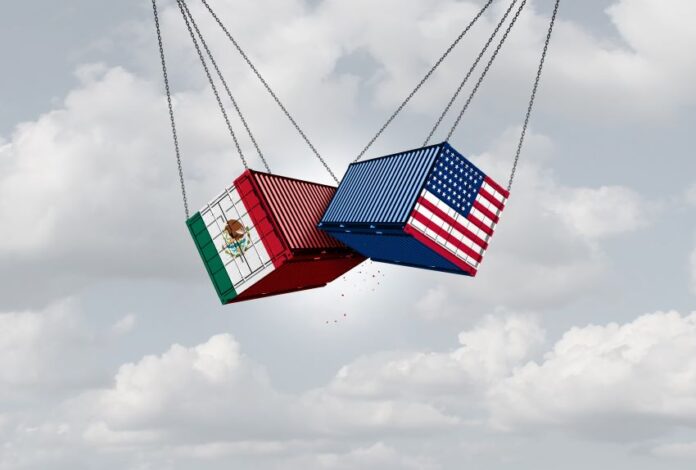President Donald Trump’s tariffs on Mexico would disrupt trade flows by US $740 billion, financial services company Moody’s Ratings warned on Monday. They are likely to hit key strategic industries worst, including the automotive, technology and manufacturing sectors.
“The effect of tariffs and retaliation [from Mexico] would spill over into direct trade figures between the United States and Mexico, due to intermediate inputs for assembly and processing, which are transferred back and forth within the manufacturing, automotive and technology industries of both countries,” stated Moody’s.

Trump first proposed tariffs of 25% on Mexican and Canadian imports after winning the presidential election in November. He said the tariffs would remain in place “until such time as Drugs, in particular, Fentanyl, and all Illegal Aliens stop this Invasion of our Country!”
He has not yet rolled out the tariffs, but he has laid the groundwork for their implementation, possibly as soon as Saturday.
Moody’s figure of US $740 billion takes into account tariff implementation and potential similar retaliatory measures applied by Mexico.
Mexican exports to the United States contribute approximately 30% of the country’s GDP, and around 80% of Mexico’s exports are destined for the U.S. Therefore, tariffs would have a negative macroeconomic effect, as well as hinder several sectors.
New tariffs could also lead to the peso’s depreciation and drive up inflation. On Jan 20, Moody’s warned that proposed tariffs on Mexico could limit economic growth to 0.6% in 2025.
The ratings agency suggested that if Mexico were to respond with its own tariffs it “would complicate Mexico’s efforts to reduce the fiscal deficit and increase pressure on the sovereign credit profile.”
It remains uncertain whether Trump will impose the tariffs he pledged on both Mexico and Canada.
“Despite the president’s initial intentions to impose a 25% tariff on imports from Canada and Mexico as early as 1 February, recent statements indicate the U.S. government will review the measures’ economic effects, delaying a decision on tariffs to 1 April at the earliest,” wrote European affairs analyst Yannis Koutsomitis wrote on on X on Monday. “The delay would allow time for negotiation between country officials.”
With reports from Expansión
